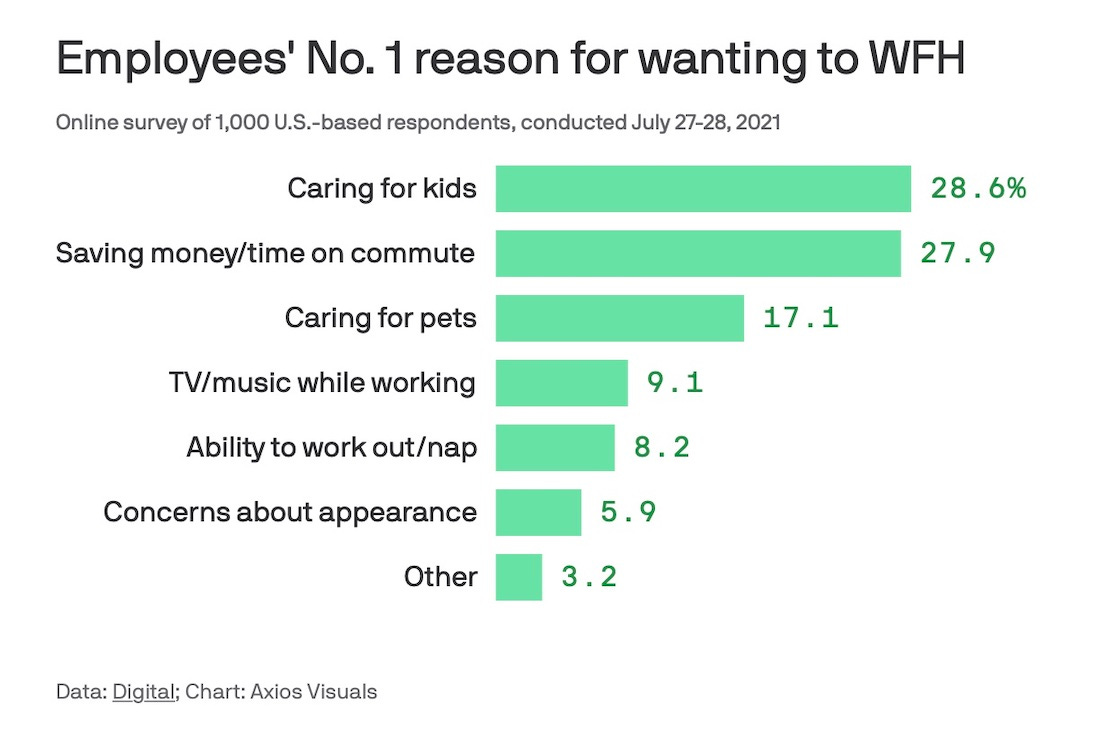Our love-hate relationship with Big Tech
Apple will keep selling phones and Facebook growing its userbase, despite all the bad press.
👋 Welcome to FWIW by David Tvrdon, your weekly tech, media & audio digest.
In this edition
Tech scandals keep surfacing, while we keep using tech products more and more
Apple’s iPhone 13 event did not show any significant changes to the devices
Why Apple and Spotify should take a lesson from China’s podcasting apps
It’s like candy, we know there are healthier alternatives, we just can’t stop eating it
The technology news cycle for the past few years has been roughly the same. Big Tech companies kept making new products (either physical or digital), people kept spending more and more money on them.
Meanwhile, damning reports of all kinds of missteps appeared only to cause temporary resentment.
Apple generated a lot of headlines with their decision to combat child sexual abuse in a manner (scanning people’s photos) not previously discussed with a wider range of professionals and security researchers, only to postpone the rollout.
Yet the company sparked even more headlines by introducing new iPhones, iPads and a new generation of its smartwatch.
Facebook introduced their Ray-Ban smart glasses to a mixed media reception, yet many agreed the choice not to have Facebook branding anywhere and leave the design entirely to Ray-Ban was the right call and might help sales. Facebook already has a winning product, its Oculus Quest 2 VR headset praised by many and quickly approaching the 10 million goal set by Zuckerberg.
However, we keep reading revelation after revelation of the internal misconduct at the company when it comes to users’ health and safety and the company’s profits. The latest scandal is being fueled by the Facebook Files investigation by the Wall Street Journal based on a big trove of leaked internal documents - WSJ claims it’s the biggest FB leak yet.
Facebook Inc. knows, in acute detail, that its platforms are riddled with flaws that cause harm, often in ways only the company fully understands. That is the central finding of a Wall Street Journal series, based on a review of internal Facebook documents, including research reports, online employee discussions and drafts of presentations to senior management.
The stories published in the investigation until now (more are probably to come) do not necessarily bring new revelations, it’s more about the confirmation of the things we kept hearing and reading about before.
Still, reading how Instagram is damaging for teen girls and the company has known about it and done little, or that an algorithm change rewarded negative, angrier posts to boost engagement, makes you wonder how much more evidence is needed to make these things stop.
South Korea recently fined Google $177 million for hampering the development of rivals to its Android operating system, in other words, the company is said to have impeded development of competing software.
And it’s not just the “old players” having problems. The European Union has opened two inquiries into the Chinese-owned short-video platform TikTok related to the processing of children's personal data and transfers of personal data to China.
It almost seems like the cost of quick upscaling is riddled with mismanagement for the sake of growth and user safety.
Governments all over the world are stepping up and trying to police the biggest technology players. The question remains whether the right kind of regulation will come, whether it will help or just cement the status quo with little room for competition to grow.
📲 Apple’s iPhone 13 event: the 8 biggest announcements. This year’s upgrades really feel small, almost boring. [The Verge]
📊 Europe’s 100 hottest young scaleups of 2021. This is a nice list of startups with the potential to become global players. [The Next Web]
😲 Intuit, the maker of tax return product TurboTax and other financial software, is buying email newsletter platform Mailchimp for about $12 billion. Mailchimp, established in 2001, never took any outside funding and now has 800,000 paying customers. [CNN]
🤨 TV+ and Apple’s product placement strategy. Hundreds of iPhones in Ted Lasso and other strategic decisions. This is a really good video by WSJ examining how Apple’s products play not only central stage in its TV+ production but are also used to move the story forward. [WSJ]
😳🤯 The day deepfake researchers have long feared has come: A horrifying new AI app swaps women into porn videos with a click. [Tech Review]
The results are far from perfect. Many of the face swaps are obviously fake, with the faces shimmering and distorting as they turn different angles. But to a casual observer, some are subtle enough to pass, and the trajectory of deepfakes has already shown how quickly they can become indistinguishable from reality. Some experts argue that the quality of the deepfake also doesn’t really matter because the psychological toll on victims can be the same either way. And many members of the public remain unaware that such technology exists, so even low-quality face swaps can be capable of fooling people.
🎧 You should listen to this podcast: A professor of management practice at Harvard Business School explains the chip shortage. And much more. I learned a ton about chip-making and the processes behind the scenes. Also, the investment to become a global chip manufacturing power is mind-boggling. [Decoder]
👉 Today, I will be moderating a panel on product thinking at the IPI World Congress in Vienna. You can watch online, there is an option to register for free.
📊 Overcoming metrics anxiety: new guidelines for content data in newsrooms. Reuters Institute for the Study of Journalism published an interesting paper by their journalist fellow, Elisabeth Gamperl. It looks at how data and metrics are used by media. [RISJ]
1️⃣ Investment, growth, integration: Ringier’s strategy in Eastern Europe. Why Ringier is expanding its activities in Eastern Europe - and how. [by Olaf Deininger]
2️⃣ Media products: When to build it yourself? Developing in-house digital solutions comes at a cost that is not always paid directly with money. [by David Tvrdon]
3️⃣ 5 Twitter updates publishers should be aware of. The platform strengthens privacy and helps to monetise content. [by Sofiia Padalko]
4️⃣ Top European media thought-leaders on LinkedIn. 10 thought leaders setting the pace in the European media landscape.
5️⃣ 5 keys to making quality journalism sustainable. Takeaways from sustainable quality journalism from four regions–Western Europe, Eastern Europe, the US, and Latin America. [by James Breiner]
[ 📬 Get The Fix newsletter delivered to your inbox every week with the latest insights, news, and analysis about the European media market. Sign up here > ]
🎙 What Spotify and Apple can learn from Chinese podcasting apps. Because it evolved independently, the podcast ecosystem in China is fundamentally different. The most notable difference between Chinese podcasting apps and competitors like Spotify and Apple Podcasts is that they allow listeners to leave individualized comments on each episode, rather than just reviews of an entire show (Podcast Index is working on a similar concept for podcasting). Also, popular podcasting apps in China have baked in monetisation options. [Rest of World]
👀 What does Spotify know about me? More than you think, but less than Apple, Google or Facebook. (+ this is an interesting podcast interview with Spotify CEO Daniel Ek, he also talks about the use of data and personalisation. [Medium, James Cridland]
😲 Why we don't want to return to the office? You can sum it up simply by saying people are getting used to work from home and their families are too. [Axios]
Last poll results
🙏 And big thanks to Celine Bijleveld who helped me edit this newsletter. You can follow her on Substack here.














